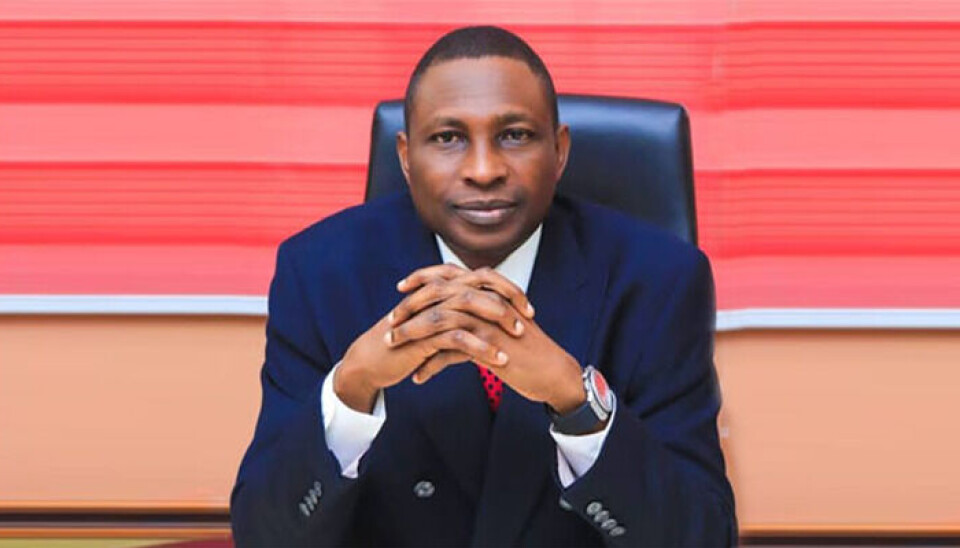Copyright : Re-publication of this article is authorised only in the following circumstances; the writer and Africa Legal are both recognised as the author and the website address www.africa-legal.com and original article link are back linked. Re-publication without both must be preauthorised by contacting editor@africa-legal.com
Africa requires broad-based, radical reforms to lower investment risk and attract greater FDI

Speaking at the recent EBII Group African Leaders & Partners Forum in Washington DC, Ola Olukoyede of Nigeria’s Economic and Financial Crimes Commission described elaborate reforms as the panacea to investment risks across the African continent
Unlocking Africa’s full economic potential requires ‘broad and radical reforms’ to strengthen institutions, improve the ease of doing business, uphold the rule of law, and invest in the continent’s human capital, anti-graft czar Ola Olukoyede, Executive Chairman of the EFCC, told the African Leaders & Partners Forum on Friday.
Lowering the investment risk in Africa with such reforms would make the continent even more appealing to global investors, said Olukoyede, who joined other world leaders at the Washington, DC forum to discuss de-risking investment in Africa’s strategic sectors, including agriculture, energy transition, and critical minerals.
Africa has huge potential, with its mineral riches and the talents of its young, tech-savvy population, but needs fully-integrated reforms to attract greater FDI.
A trained lawyer, Olukoyede is a specialist in fraud management, compliance, and corporate intelligence. He has more than 25 years leadership expertise in anti-corruption engagement, fraud examination, leading investigations and litigation of fraud and financial crimes in international development projects, as well as a regular consultant for law enforcement and anti-corruption agencies.
Olukoyede was a keynote speaker at last week’s African Leaders & Partners Forum in Washington, DC. Other speakers included the likes of Hon Shirley Ayorkor Botchwey, the Commonwealth Secretary-General; Nardos Bekele-Thomas, the first woman to lead the Africa Union Development Agency - New Partnerships for Africa's Development (AUDA-NEPAD); Dr Dayna Bowen Matthew, Dean of George Washington University Law School; and several African ambassadors along with representatives of the US Senate, House of Congress, and Department of State.
Tackling economic and financial crimes, as investigated and prosecuted by EFCC, has helped Nigeria deepen and widen its investment fortunes, said Olukoyede.
“There can be no greater incentive to investors than assurance of due process and rule of law,” said Olukoyede. “From a background of zero conviction for financial and economic crimes, we have achieved over 13,000 convictions in 22 years of operation. In 2024, the Commission secured 4,111 convictions. This rekindles confidence that investors who for whatever reason felt cheated can seek redress and get justice’’,
The EFCC also offers advisory services, on demand, to foreign investors seeking information in order to navigate potential risks in Nigeria’s investment landscape, and issues alerts relating to investing risks (eg a notice on 58 Ponzi schemes masquerading as legit investments in March 2025).
Recently its mandate was bolstered by the creation of the Department of Fraud Risk Assessment and Control, which deploys risk-based approaches to prevent corruption in Ministries, Departments and Agencies, which has already recorded a major milestone by evaluating a $50 million Pi-CNG project contract, ensuring 95% delivery. The EFCC also arrested 792 cryptocurrency and internet fraudsters in Lagos a single day, assisted Nigeria’s efforts to enhance AML/CFT compliance to exit the FATF grey list, and has prosecuted sophisticated digital investment frauds.
Olukoyede encouraged the rest of the world to learn from EFCC’s successes as it has collaborated on joint operations with the FBI, RCMP, and others to drive reforms.
“Whether we like it or not, there is an ongoing scramble for Africa, which confirms global expectations of a continent waiting to unleash its potential,” he said. “This time, the scramble is not in terms of territorial influence, as was the case in colonial times. Rather, forward-looking partners who are willing to key into the vision of Africa are already active in the continent, helping to build the foundation of our prosperity.”
